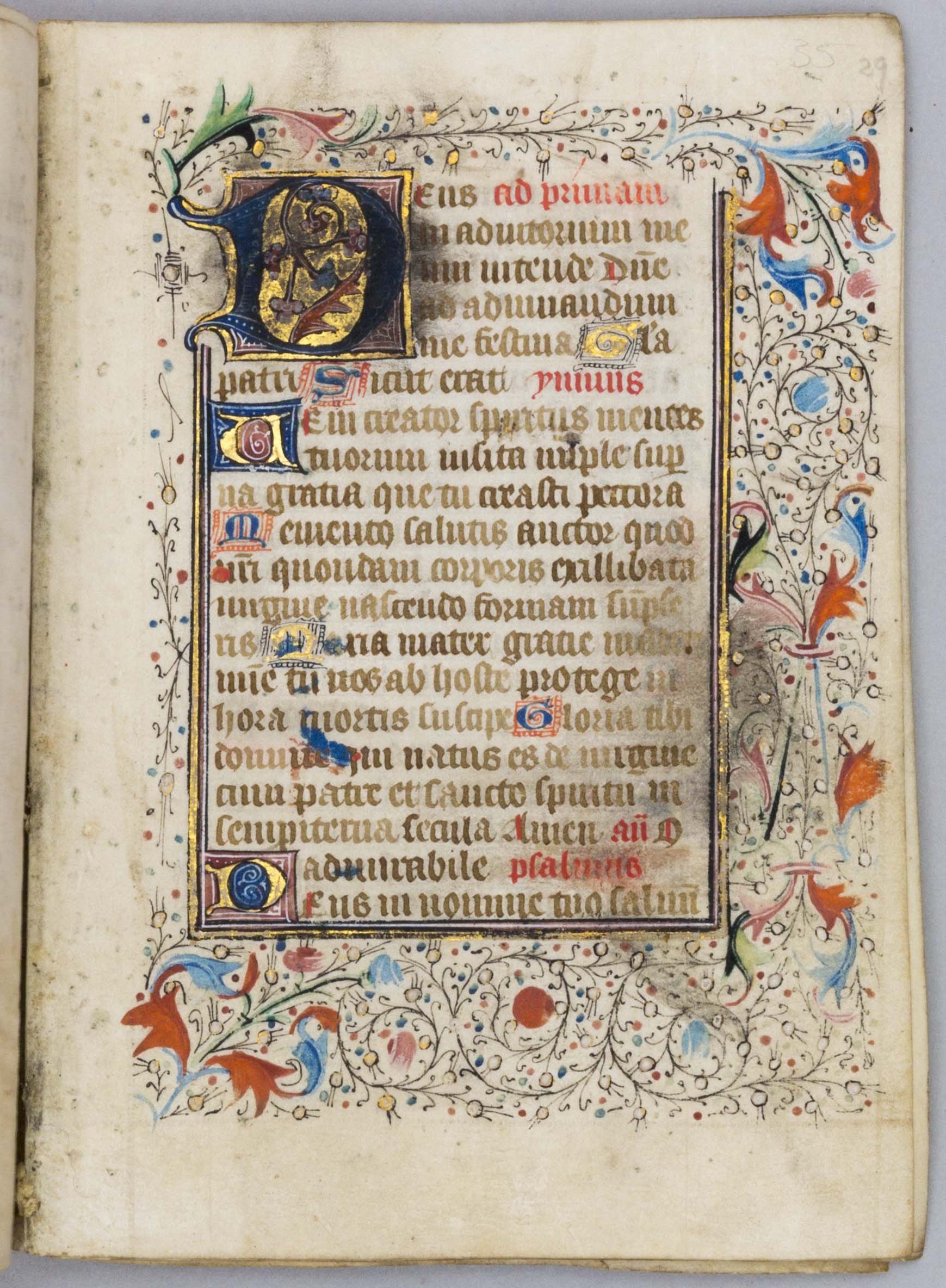
Early 15th-century
MS906
Books of Hours were devotional volumes in Roman Catholic use, written primarily in Latin. Modelled on the devotions used at the eight canonical hours, specifically the Hours of the Blessed Virgin, they could also include a calendar, almanac, hymns, psalms, and meditations. Mediaeval bestsellers, they were especially popular in manuscript form from the fourteenth to the sixteenth centuries, and appeared in 530 European editions in the incunable period, including four printed by Wynkyn de Worde in Westminster and six by Richard Pynson in London. Victims of the Reformation, their production ceased by the end of the sixteenth century, Edward VI having declared in an Act against Superstitious Books and Images (1550) that, together with other liturgical books or other writings, written or printed, in English or Latin, previously used ‘for service of the Church’, they should be ‘clearly and utterly abolished, extinguished and forbidden for ever to be used or kept in this realm’. This manuscript Book of Hours from the early fifteenth century was produced in northern France for English use and follows the form used in Salisbury Cathedral from the twelfth century onwards. The calendar adds the names of two English saints, and later hands have added recipes and prayers in English.